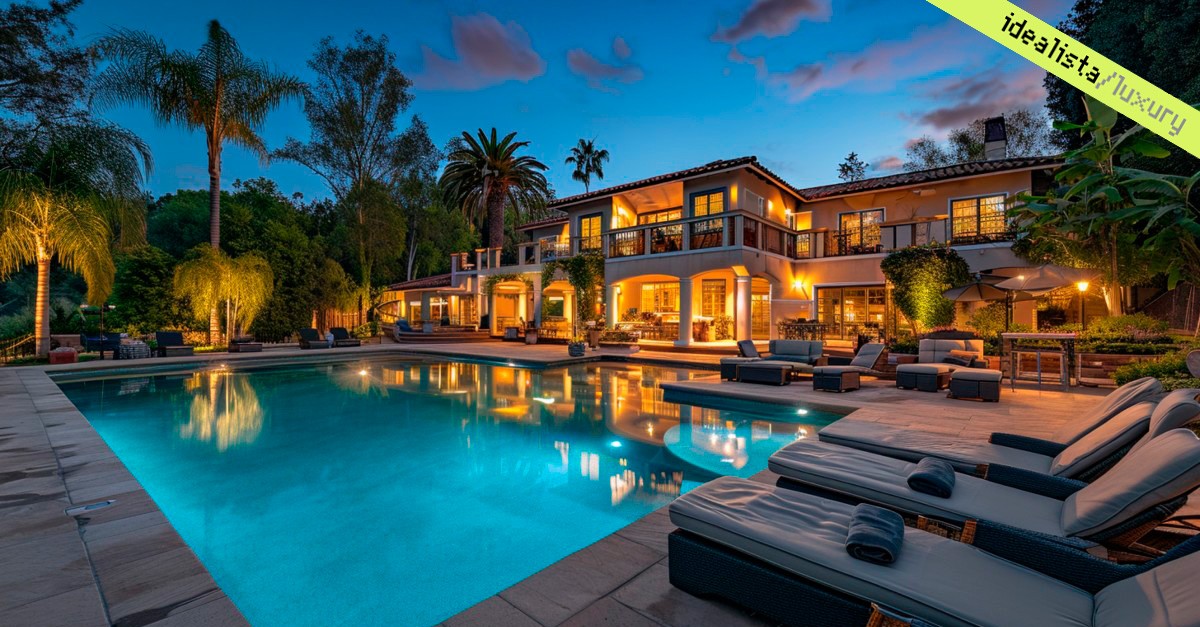
With the growing interest in luxury properties, the tax complexity associated with these types of homes has become a significant concern for owners and potential buyers. When considering the purchase of a luxury home in Portugal, it is essential to understand the taxes payable on this type of property. This article helps you analyse the tax burdens involved in such transactions and presents optimisation strategies that benefit luxury property owners.
Luxury properties in Portugal: definition and key characteristics

Luxury properties in Portugal are defined not only by their high market value but also by exclusive features such as prime locations, sophisticated design, and top-quality finishes. Typically valued in the millions of euros due to their stringent criteria, these properties attract considerable interest among luxury homeowners.
The specific characteristics of these assets have a direct impact on the way taxes are applied, influencing different tax brackets and the consideration of rental income generated from any potential transactions.
Main taxes on luxury homes in Portugal

Luxury property owners are subject to certain taxes, which they should be aware of when purchasing such assets. The main taxes payable on a luxury property are:
- Municipal Property Tax (IMI): Paid annually based on the taxable property value.
- Municipal Tax on Property Transfers (IMT): Applied upon purchase, with progressive rates.
- Additional IMI Tax (AIMI): Imposed on high-value properties, increasing the overall tax burden.
The IMT follows progressive brackets, where the rates rise to reflect the property's value – and at certain thresholds, an additional autonomous rate may apply.
AIMI regime and specific applications

The Additional IMI Tax (AIMI) is a supplementary charge applied to luxury properties in Portugal. This tax varies according to the property's taxable value (VPT) and the type of owner (individual or company). The aim of this regime is to balance the taxation of high-value properties. Its implementation is crucial for understanding the overall impact of tax charges when acquiring such properties.
The rates applied to each property differ based on certain characteristics:
| Individuals (separate taxation) |
|
|---|---|
| Individuals (joint taxation) |
|
| Companies |
|
| Companies (regime for properties used for personal purposes) |
|
| Joint Estates (Inherited Properties) |
|
Tax exemptions and benefits
There are various tax benefits and exemptions that can help reduce the charges on luxury homes. Among these, we highlight the following:
- Taking advantage of incentives in areas designated for urban rehabilitation.
- Implementing tax restructuring strategies to reduce costs.
- Seeking expert advice to identify and apply available exemptions, ensuring that some of these benefits are effectively utilised.
Buying a luxury home in Portugal as a foreigner

Foreigners can purchase luxury property in Portugal without restrictions, but they must be aware of several taxes and legal requirements associated with the acquisition. Here's an overview:
Taxes on buying property in Portugal
- IMT (Property Transfer Tax)
This one-time tax is calculated based on the higher of the property's purchase price or its taxable value (VPT). Rates are progressive and can reach up to 8% for properties exceeding €1 million. The exact rate depends on the property's value and whether it's intended as a primary residence. - Stamp Duty (Imposto de Selo)
A flat rate of 0.8% is applied to the property's purchase price or VPT. - IMI (Municipal Property Tax)
An annual tax based on the property's VPT, ranging from 0.3% to 0.45% for urban properties, and up to 0.8% for rural properties. - AIMI (Additional IMI Tax)
Applicable to individuals owning residential properties with a combined VPT exceeding €600,000. The rates are:- 0.7% for properties valued between €600,000 and €1 million
- 1% for properties valued between €1 million and €2 million
- 1.5% for properties valued over €2 million Couples can opt for joint taxation, raising the threshold to €1.2 million.
Legal requirements for foreign buyers
- Tax Identification Number (NIF): Essential for all property transactions in Portugal. Foreign buyers must obtain an NIF from the local tax office. This process typically costs between €10–€20.
- Bank account: Necessary for financial transactions related to the property purchase.
- Fiscal representation: Foreign buyers without a Portuguese address must appoint a fiscal representative to handle tax matters.
For more on buying a luxury property in Portugal, consult our buyer's guide.


